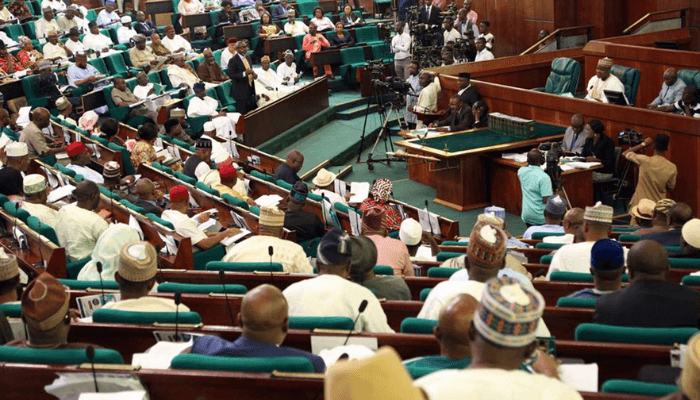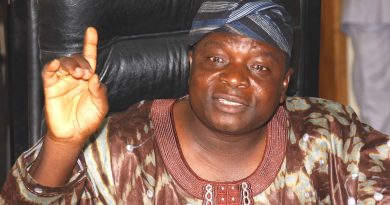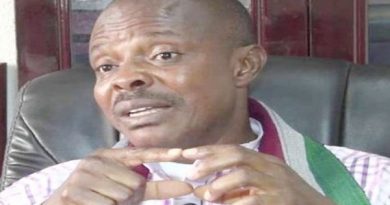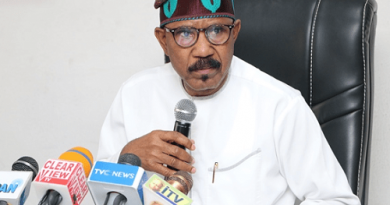Nigeria’s Reps withdraw counter subversion bill after public disapproval; Speaker defends proposal, says it is not targeting anyone
Tajudeen Abbas, Speaker of the House of Representatives on Wednesday withdrew the Counter Subversion Bill after overwhelming public disapproval.
On Tuesday, the Counter Subversion Bill 2024 document sparked widespread controversy on social media.
The proposed legislation faced intense criticism for its harsh penalties including stiff penalties for those who destroy national symbols among several others. Critics argued that the proposed measures were excessive and infringed on fundamental rights of individuals.
The bill which has already passed its first reading and is set for a second reading on July 23, where its general principles will be debated is sponsored by Speaker of the House of Representatives, Tajudeen Abbas and proposes among others, severe penalties for Nigerians who fail to recite the newly approved national anthem or insult politicians and community leaders.
Major provisions of the bill include:
1. Penalty for national anthem violations: Failure to recite the national anthem or pledge could result in a fine of up to N5 million, a prison sentence of five to ten years, or both.
2. Destruction of national symbols: Anyone found guilty of destroying national symbols or defacing a place of worship with intent to incite violence will face a fine of N5 million, a 10-year prison sentence, or both.
3. Unauthorized activities: Setting up illegal roadblocks, performing unauthorized traffic duties, imposing illegal curfews, or organising unlawful processions could lead to a fine of N2 million, five years in prison, or both.
4. Insulting leadership: Insulting, defaming, or bringing disrepute to community, religious, or government leaders carries a fine of N4 million or a two-year prison sentence.
5. Threatening national security: Engaging in activities that foster mistrust, intolerance, or violence threatening Nigeria’s peace and security could result in a fine of N5 million, a 10-year prison term, or both.
6. Illegal occupation of public or private spaces: Forcefully taking over places like worship centres, schools, or public arenas can lead to a fine of N5 million or up to 10 years in prison.
7. Disregarding Nigerian sovereignty: Pledging loyalty to or supporting organisations disregarding Nigeria’s sovereignty could result in a fine of N3 million or a four-year prison sentence.
8. Foreign interference: Receiving financial or political support from foreign entities that conflict with Nigeria’s interests could lead to a fine of N15 million or a 20-year prison term.
9. Undermining national security: Any activities that disrupt community harmony, disturb peaceful coexistence, or undermine national security could result in a fine of N3 million, five years in prison, or both.
10. Disobedience to authority: Persistently disobeying or disrespecting constituted authority could lead to a three-year prison sentence on the first offence and seven years for subsequent offences, or a fine of N5 million.
In response to the public outcry, Abbas in defence of the bill stated that it was in its introductory stage and that its primary aim is to strengthen Nigeria’s anti-terrorism framework by addressing subversive activities conducted by various groups, including associations, organizations, militias, cults, bandits, and other proscribed entities which according to him is similar to laws in countries like the United Kingdom, Spain, and Canada.
He posited that the House of Representatives, as the “People’s House,” encourages robust public engagement and welcomes input from Nigerians to shape the outcome of the legislation.
“The attention of the Speaker, House of Representatives, Rt. Hon. Abbas Tajudeen, Ph.D., has been drawn to reports in sections of the media about the Counter Subversion Bill, which he sponsored,” the statement read. “The Speaker appreciates the interest Nigerians have shown in the bill, which pertains to our national security.”
Tajudeen assured the public that the House of Representatives is open to robust engagement and discussion on the bill. He outlined the parliamentary process that the bill must undergo, starting with its Second Reading, where members of the House will thoroughly debate its merits and demerits. If the bill passes this stage, it will be referred to the relevant committee for further legislative action, including a public hearing where citizens and stakeholders will be invited to share their views.
“The Committee must, as a matter of responsibility, invite the Nigerian public, particularly relevant stakeholders, to a public hearing on the Bill. It is expected that citizens would bear their minds either physically or via memoranda on the Bill. Their inputs would form the basis for the Committee’s report, to be laid on the floor of the House,” he stated.
Speaker Abbas Tajudeen who said the bill does not target any specific group or region within the country, promised that the Bill, and indeed any other draft legislation before the House, will pass through all the legislative processes, and Nigerians would have ample opportunity to make their inputs, which will constitute the final consideration (or otherwise) of the Bill, the statement concluded.




